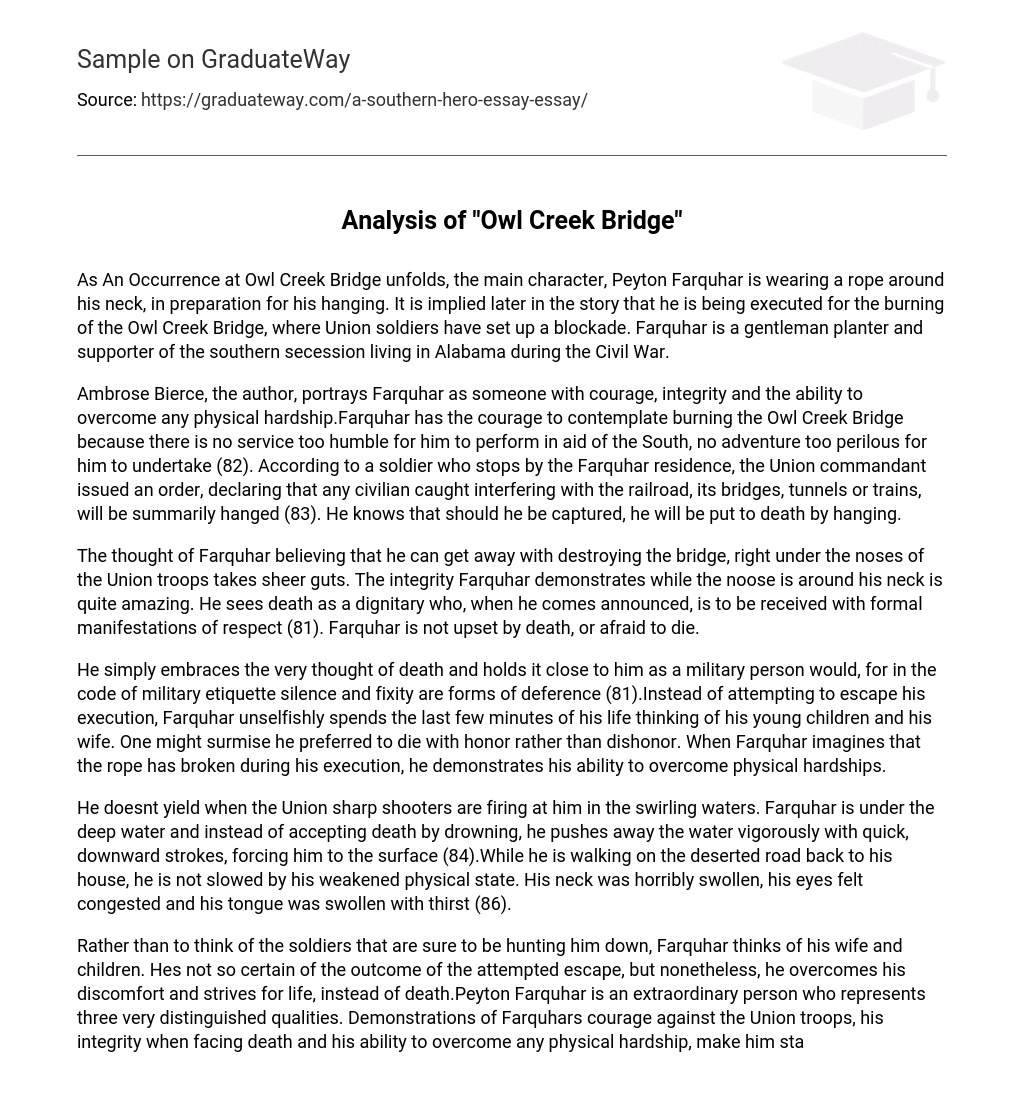An Occurrence at Owl Creek Bridge reveals Peyton Farquhar, the protagonist, with a noose tied around his neck, ready for his imminent execution. The story implies that his sentence stems from his alleged involvement in the destruction of the Owl Creek Bridge, which Union soldiers have barricaded. Farquhar, a refined planter and advocate for southern secession, resides in Alabama during the Civil War.
Ambrose Bierce, the author, portrays Farquhar as a brave and honorable individual who can overcome any physical challenge. Farquhar is willing to burn the Owl Creek Bridge because he believes there is no task too small to aid the South or adventure too risky for him to undertake (82). A soldier informs him that the Union commandant has ordered that anyone who interferes with the railroad infrastructure will be hanged without trial (83). Despite the danger, Farquhar knows that if he is caught, he will be executed by hanging.
Farquhar’s audacious belief that he can demolish the bridge without the Union troops noticing takes tremendous courage. Even with the noose around his neck, Farquhar’s admirable integrity is evident. He views death as a dignified figure who should be greeted with proper respect when it arrives unannounced. Farquhar remains unfazed by death and harbors no fear of dying.
He fully embraces the notion of death and embraces it tightly, like a military person would, because in military etiquette, silence and stillness are signs of respect (81). Rather than trying to avoid his execution, Farquhar selflessly uses the last few minutes of his life to think about his young children and wife. One could assume that he would rather die with dignity than shame. When Farquhar envisions the rope breaking during his hanging, he shows his resilience to endure physical hardships.
Despite being fired upon by Union sharpshooters in the swirling waters, Farquhar refuses to give in. Rather than accepting a death by drowning, he vigorously pushes away the water with quick, downward strokes, causing him to resurface (84). As he makes his way back home along the empty road, his weakened physical condition does not impede him. His neck is terribly swollen, his eyes feel congested, and his tongue is parched with thirst (86).
Farquhar’s thoughts while being pursued by soldiers are focused on his wife and children, rather than the imminent danger. Despite uncertainty about the outcome of his escape, he shows determination to survive rather than succumb to death. Peyton Farquhar exhibits three remarkable characteristics: courage in confronting Union troops, integrity when faced with mortality, and resilience in overcoming physical challenges. These qualities make him a well-rounded and exceptional character.
Farquhar is depicted as a hero for the southern cause, wholeheartedly committed to his beliefs and willing to endure anything. Above all, he fearlessly embraces life, disregarding the consequences, a trait that sets him apart from most people.





